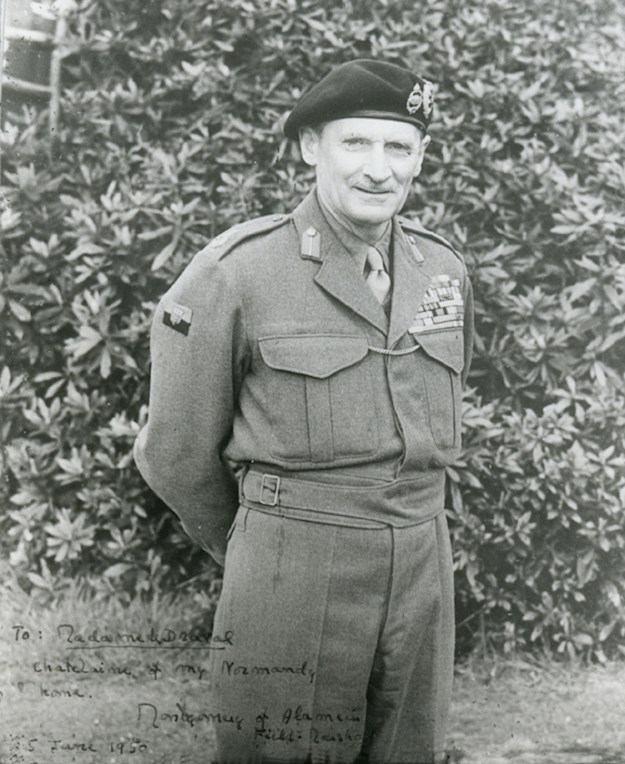Bernard Montgomery was one of the most renowned Allied generals. He gained great popularity after his victories in North Africa (El Alamein). Thereafter Montgomery led the Allied ground operations in Normandy, The Netherlands and Northern Germany. His operational choices and strong personality made him a controversial figure.
Born as the son of an Anglican pastor, Bernard Law Montgomery (1887 – 1976) was already an officer in the British army during the First World War. His personal experience of the bad habits of the British command taught him how to lead operations effectively and avoid unnecessary losses. This made him popular among his men. However, his unorthodox ideas and trenchant criticism antagonized his conservative superiors.
In 1940, Montgomery directed the successful embarkation of the 2nd Corps during the evacuation of Dunkerque. ‘Monty’ forged his legend in North Africa as commander of the 8th Army, defeating German Field Marshal Rommel’s feared Afrikakorps in the Battle of El Alamein in October 1942. Subsequently he landed in Sicily and in Italy in the summer of 1943.
He was the commander of all Allied ground forces during Operation Overlord, from the initial landings until after the Battle of Normandy. He then continued to play an important role during the rest of the campaign in Northwestern Europe.
The failure of the British and Canadian armies to pierce the German front and close the Falaise pocket in time, his disputable presentation of these events, and strategic differences lead to tensions with other Allied generals. In September 1944 Montgomery directed Operation Market Garden in the Netherlands and led his troops into Northern Germany until the final defeat of the German Reich.
On 1 September 1944 he was promoted to Field Marshal, the highest rank in the British Army. He occupied a number of important positions after the war, particularly within the North Atlantic Treaty Organisation (NATO).

